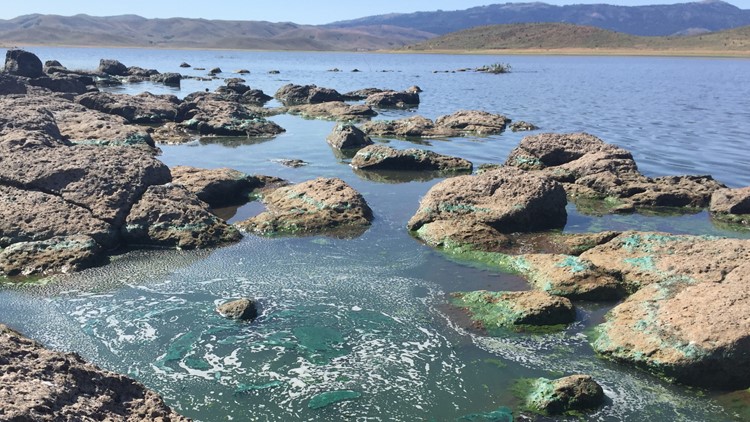BOISE, Idaho — A health advisory has been issued for Little Camas Reservoir in Elmore County.
Central District Health and the Idaho Department of Environmental Quality have issued the advisory after recent samples taken from the reservoir showed high concentrations of toxin-producing cyanobacteria, which can be harmful to people, pets, and livestock.
The public is urged to use caution when recreating in or near the water.
Cyanobacteria naturally occur in Idaho. When temperatures rise, their populations can bloom and toxic chemical compounds, or cyanotoxins, can be released into the water. Blooms can vary in appearance, and may look like mats, foam, spilled paint, or surface scum, and have a foul odor. While blooms can be discovered in one area of recreational water, they can move around to different areas, water depths and can change in severity.
There are currently 16 advisories are in place throughout Idaho. Health advisories issued by CDH and DEQ on July 31, 2019 for Mountain Home Reservoir (Elmore County) and Indian Creek and Blacks Creek Reservoirs (Ada County) remain in effect.
When recreating near or in any surface water with a health advisory in effect, take the following precautions:
•Avoid swimming, wading, or other activities. Take extra precautions to ensure children, pets, and livestock are not exposed to the water.
•Do not drink or cook with water containing a bloom. Boiling and filtering the water can increase the risk.
•Wash your hands thoroughly after handling fish caught in water experiencing a bloom. Cyanotoxins can accumulate in fish and the risk to people is being researched. Any fish caught should be cleaned and washed thoroughly in uncontaminated water and any internal organs disposed of before consumption. If people choose to eat fish from this area, filet the fish and remove all of the fat, skin, and organs before cooking.
•Clean with potable water as soon as possible if water contacts skin or pet fur.
Symptoms of cyanotoxin exposure include rashes, hives, diarrhea, vomiting, coughing, and/or wheezing. More severe symptoms affecting the liver and nervous system may result from ingesting water. If symptoms persist, consult your healthcare provider.
Many harmful algae blooms are identified through public reporting. If you suspect a bloom on a recreational water body in Idaho, report it to DEQ.
Stay up to date and get breaking news notifications: Download the KTVB news app



